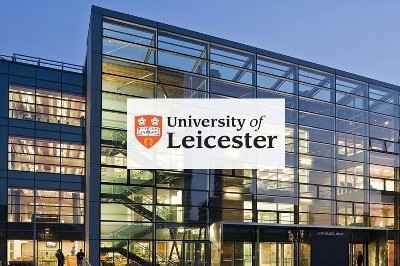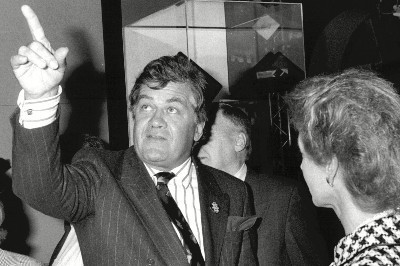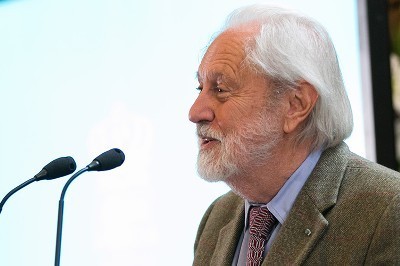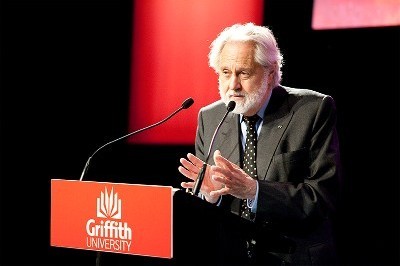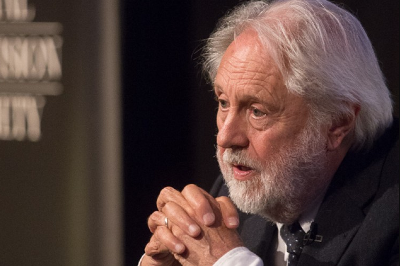The University of Leicester will be bringing a bit of Hollywood magic to its lecture theatres as one of the great names of cinema history and an honorary graduate will speak on the challenges faced by media today.
Whether it is the strains of Vangelis from Chariots of Fire or the sight of ‘splurged’ gangsters in Bugsy Malone, or others, many will have fond memories of the popular and award-winning films that Lord Puttnam helmed during his substantial career as a film producer.
Now, he will be visiting the University of Leicester to deliver its Chancellor’s Distinguished Lecture. His lecture, entitled ‘The times they are a’changin’, will take place on Tuesday 7 November from 6pm in the Peter Williams Lecture Theatre.
The lecture is free and open to the public, but tickets must be booked via www.le.ac.uk/distinguished-lectures.
In his talk, David Puttnam will draw upon his experience as a Life Peer and his role as chair of the joint scrutiny committee on the Communications Bill in 2002. He will consider the developing social responsibilities of online media in the digital age, along with the challenges posed for policy-makers by the immense power, ‘intelligence’ and influence of the major platforms.
In particular, he will consider their impact on conventional media, on attitudes to issues as disparate as climate change and Brexit, as well as the political implications of recent developments in the technologies that drive these services.
This will not be the first time that Lord Puttnam has visited the University of Leicester, having received an honorary Doctor of Letters degree from the University in 1986. He later gave the second annual lecture for the then Richard Attenborough Centre, now Attenborough Arts, in 2001 and Graduates’ Association Lecture in 2004.
Lord Puttnam is the Chair of Atticus Education, an online education company founded in 2012 that delivers audio-visual seminars to students all over the world. In addition to this, he is a member of the House of Lords where he pursues an active role in a variety of areas, from educational and environmental issues to digital skills.
He spent thirty years as an independent producer of award-winning films including The Mission, The Killing Fields, Chariots of Fire, Midnight Express, Bugsy Malone and Local Hero. Together these films have won ten Oscars, ten golden globes, twenty-five Baftas and the Palme D'Or at Cannes. From 1986 to 1988, he was Chairman and CEO of Columbia Pictures. He returned to the UK to produce The Memphis Belle, The War of the Buttons and My Life So Far. From 1994 to 2004, he was Vice President and Chair of Trustees at the British Academy of Film & Television Arts (BAFTA) and was awarded a BAFTA Fellowship in 2006. He is also a Fellow of the British Film Institute.
Inaugurated in 2015, the Chancellor’s Distinguished Lecture Series is the University of Leicester’s flagship programme of public events. Free and open to the public, these talks are given by high-profile speakers who either have an existing link to, or relationship with, the University, or who are notable in fields that align with the University’s values and aspirations.
The Rt. Hon. Lord Grocott is the sixth Chancellor of the University of Leicester, having originally studied here as an undergraduate. He twice served as a Labour MP, 1974-1979 and 1987-2001, after which he was named a Life Peer. He took up his position as Chancellor of the University in 2013.
Lord Grocott said: “I am delighted that my friend David Puttnam has accepted our invitation to speak for the University's Distinguished Lecture Series. David communicates his passions whether they be film, education, parliamentary democracy or the media, with great knowledge and infectious enthusiasm. No wonder he is such a popular and admired member of the House of Lords. We can all look forward to what I know will be a stimulating and entertaining evening.”


